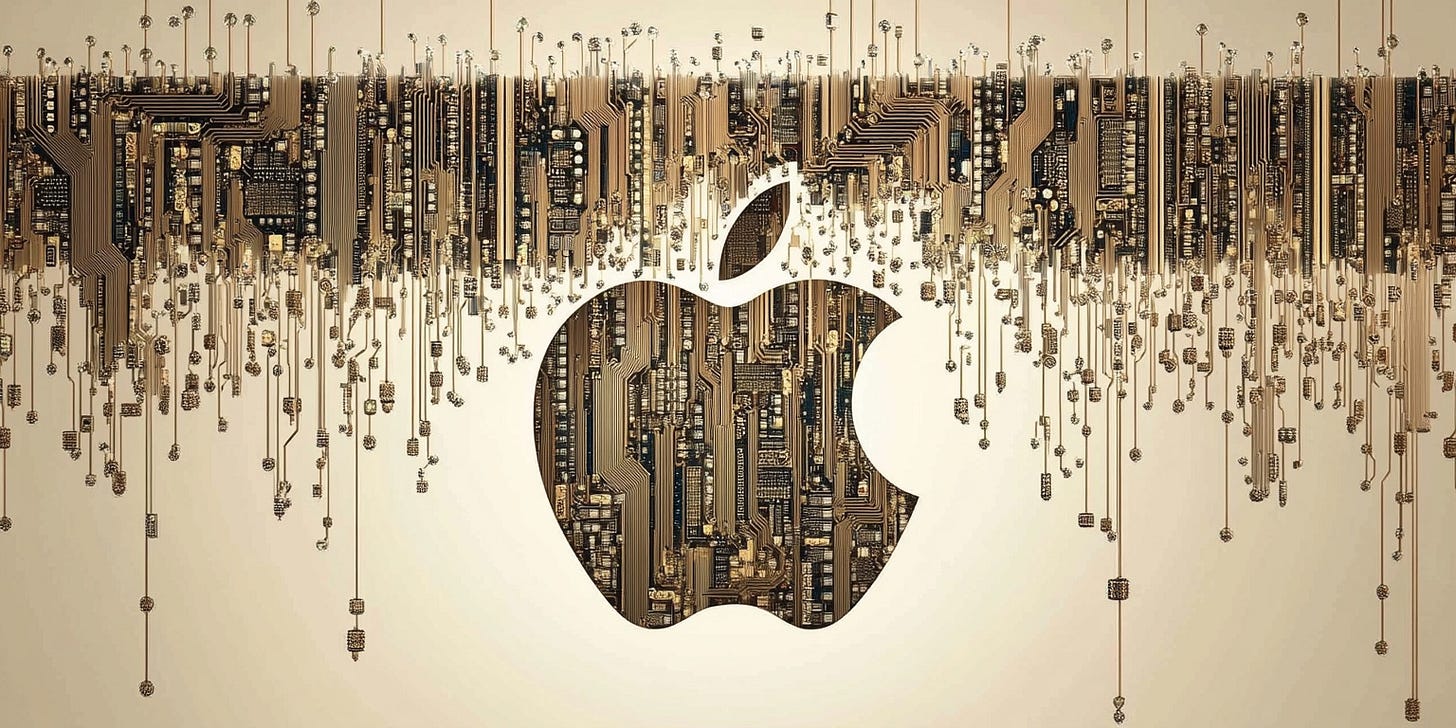The war for AI talent
After weeks of reporting, Mark Zuckerberg officially announced that "Meta Superintelligence Labs" would develop AI systems that could match or exceed human capabilities. The new group will be led by Alexandr Wang (former CEO of Scale AI and now Meta's chief AI officer) and Nat Friedman (former CEO of GitHub).
News from the front:
In addition to the lab announcement, a list of initial staff was also released - with four more OpenAI researchers poached (including key contributors to o1-mini and o3-mini).
As a result, OpenAI is "recalibrating comp" and pitching to its researchers that its stock has much more upside than Meta's.
But OpenAI is not the only one feeling the heat - Daniel Gross, the CEO/cofounder of Ilya Sutskever's Safe Superintelligence Inc., is also joining the new lab.
Much ado has been made about Meta’s supposed $100M offers - but reporting suggests that although $100M for a signing bonus is unheard of, $100M (or even $300M) over four years is something Mark Zuckerberg has offered.
For more on this story, see last week’s roundup:
Elsewhere in frontier models Chinese competition:
Baidu overhauls its search engine with AI features, voice function, and its first image-to-video model in its most sweeping revamp in years.
Huawei open-sources its 7B and 72B Pangu AI models and reasoning tech to encourage the use of its other products, such as Ascend AI chips.
Baidu open-sources its Ernie 4.5 LLM models, with some saying this could cement China's AI leadership while others doubt it will be a "DeepSeek moment."
Alibaba unveils Qwen VLo, a text-to-image and image-to-image generation model with progressive generation tech that shows the image creation process.
And Chinese AI models from DeepSeek and others are becoming more popular worldwide, with ChatGPT having 910M global downloads compared to DeepSeek's 125M.
Siri's stand-ins
Apple is reportedly considering replacing Siri's in-house AI models with technology from Anthropic or OpenAI, marking a significant strategic reversal for the typically self-reliant tech giant.
Why it matters:
Historically, Apple has prided itself on developing core technologies in-house. Switching to a competitor's LLM (especially after touting its Foundation Model features) would feel like acknowledging its struggle to compete in the generative AI space.
These talks are in the early stages, and nothing is final. However, it's interesting to note that after multiple rounds of testing, executives felt that Anthropic's technology was the most promising for Siri's needs.
Ultimately, this does little to quell the rumors that Apple doesn't have a clear sense of direction, as the company has seemingly greenlit a multibillion-dollar budget for 2026 for running its own models while it also pursues outside acquisitions, such as Perplexity.
Elsewhere in the FAANG free-for-all:
Meta is testing custom AI chatbots that message users unprompted on its AI Studio platform to boost engagement.
X will start publishing Community Notes written by AI agents and allow developers to submit their own AI agents for review.
Meta expands WhatsApp's voice calling for businesses via API and explores AI-powered product recommendations for merchants.
And Google announces 30+ Gemini AI tools for educators, including "Gems" for student assistance, included with Google Workspace for Education accounts.
Pyrrhic victory
Recent court rulings gave AI companies like Meta and Anthropic wins against authors' copyright claims, but the victories come with significant caveats that could actually complicate the legal landscape for AI training.
Between the lines:
Both judges agreed that training AI models on copyrighted books constitutes "fair use" because it's transformative. Still, one judge explicitly stated his ruling doesn't mean Meta's use is lawful - just that the plaintiffs made poor arguments.
The rulings only addressed AI training inputs, not outputs, leaving the bigger question of when AI-generated content infringes copyright completely unresolved - and that's where the real legal battles may unfold.
Most damaging for the industry: in Anthropic's case, the judge ruled that using pirated materials for training is likely never defensible, potentially exposing every major AI company (as nearly all are suspected to have used unauthorized materials) to financial damages down the road.
Elsewhere in AI anxiety:
Ford CEO Jim Farley, Andy Jassy, and other CEOs are now predicting that AI will significantly replace white-collar workers, a shift from dodging job loss questions.
A whistleblower details Clothoff, an AI-powered nudify app that reportedly produces 200K images daily.
Carnegie Mellon and other US universities are rethinking CS programs to adapt to generative AI, focusing more on computational thinking and AI literacy.
Performers on OnlyFans and other adult sites are using LLMs for creative inspiration, amid a rise of adult-specific LLMs like chatbot GPTease for sex workers.
And since Google launched AI Overviews, the number of news searches that result in no click-throughs has grown from 56% in May 2024 to 69% in May 2025.
OBBBA
Congress narrowly passed President Trump's "One Big Beautiful Bill" yesterday, and while many of the details are still fuzzy, at least a couple of provisions relate to America's AI development.
The dirty details:
AI and its accompanying data centers are driving huge amounts of growth in electricity demand (an estimated 25% by 2035), yet the legislation handicaps renewables that comprised 90% of new power generation last year.
Meanwhile, the Senate overwhelmingly voted (99-1) to remove a provision that would have prevented states from regulating AI. The bipartisan decision could signal an unease with unleashing AI into a fully unregulated environment.
On both counts, AI advocates argue that we're potentially handing China the AI advantage - and between these two provisions, it seems that despite Silicon Valley's Trump support during the election, the tech industry's influence has limits when it comes to several of its major priorities.
Things happen
Researcers train Llama on 10M+ human responses from psychology experiments. White collar workers deploy AI note-taking bots to attend meetings for them. The new wave of AI-powered virtual YouTubers earning millions. $377 smart glasses provide AI subtitles for conversations in real time. Perplexity launches a $200/month plan with unlimited Labs access. Oracle emerges as an AI computing powerhouse with its data center strategy. Call center agents are mistaken for AI as industry integrates bots. California colleges renew Turnitin subscriptions despite faulty AI detection. AI-generated images of fake houseplants mislead online plant communities. How one nonprofit handles suing OpenAI with limited resources. Cursor launches a web app to manage AI coding agents. AI researcher salaries rise to $500K-$2M at Big Tech companies. Cloudflare debuts a marketplace letting websites charge AI bots for scraping. MCP could serve as a universal plugin system beyond AI applications. OpenAI disavows tokenized shares now trading on Robinhood. Desktop AI assistant helps users cheat on meetings and interviews. Testing seven coding agents: Claude Code performed best, Replit failed entirely. Runway's third annual AI Film Festival features 10 AI-generated shorts. "Context engineering" gains traction over "prompt engineering." Anthropic launches program to study AI's economic impacts and downsides. UK retailers deploy AI-powered anti-theft tech amid shoplifting epidemic. If AI boosts productivity, why not shorten the workweek? Meta AI executives discussed de-investing in Llama for competitors' models. Google rolls out Veo 3 video generation to AI Pro subscribers globally. Alibaba plans $7B in subsidies and opens Singapore AI hub. Microsoft's next AI chip is delayed to 2026 and underperforms Nvidia's. Dialing back my LLM usage. Meta seeks to raise $3B in equity and $26B in debt for data center buildout. OpenAI begins renting Google's TPUs to power ChatGPT. AI startup ideas generated from Hacker News. Grammarly acquires email startup Superhuman for AI productivity suite. Anthropic's revenue hits $4B annual pace, up almost 4x this year. Analysis of 15M+ abstracts finds researchers using AI write differently than those who don't. 40+ European companies urge EU to delay AI Act implementation by two years. White House announces AI Education Pledge with 60+ companies. OpenAI expands consulting services for enterprise clients spending $10M+. Trump plans executive orders to boost AI growth including grid access and federal land. OpenAI hires team behind AI recommendation startup Crossing Minds. Chinese students dumb down writing to avoid AI detection false positives. Racist AI videos made with Veo 3 garner millions of TikTok views. Reddit at 20 battles unauthorized AI scraping while launching Reddit Answers. There are no new ideas in AI, only new datasets. Denmark plans to fight AI deepfakes by expanding copyright to body and voice. OpenAI withholds internal paper on AI stages to avoid Microsoft complications. Fine-tuning LLMs for good behavior makes them more likely to say no. Microsoft claims AI tool diagnoses diseases with 80% accuracy vs. doctors' 20%. The new skill in AI is context engineering, not prompting. Building a Personal AI Factory. What to build instead of AI agents. Gemini Flash offers a warning about the end of Moore's Law for AI. A June 2025 coding agent report.







